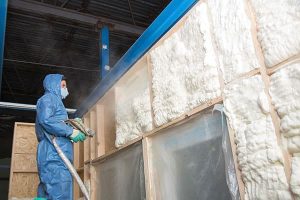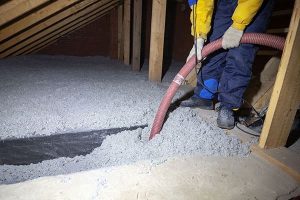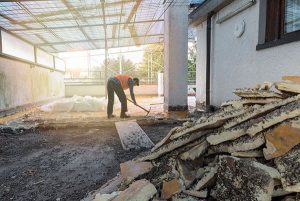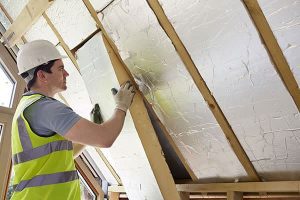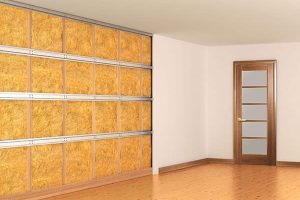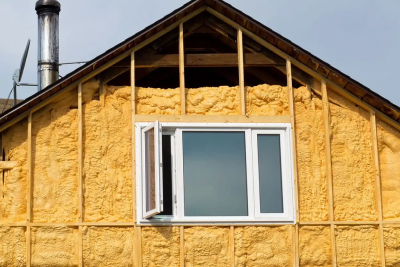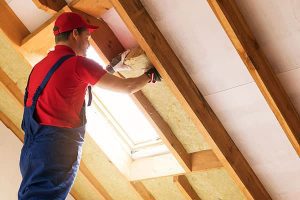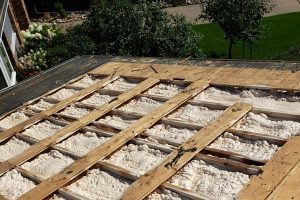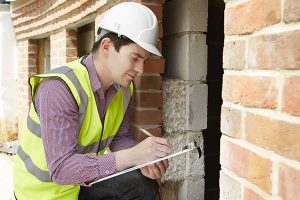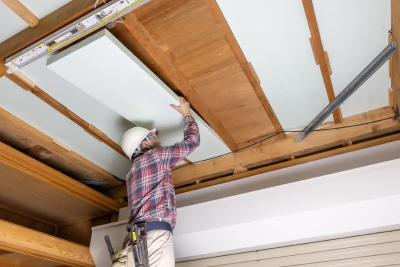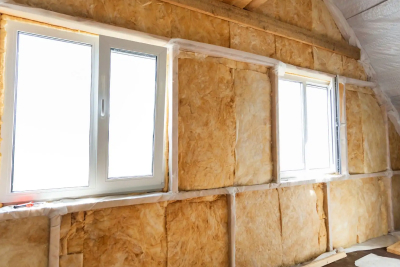By reducing energy consumption, insulation fosters comfortable living and working environments and contributes to considerable economic benefits. As we delve deeper into this subject, we focus on the specific case of Stettler, Alberta (AB), an area known for its dynamic climatic conditions that make insulation both challenging and imperative.
Making the Right Choice for Your Insulation
When deciding on your insulation, the first major decision you need to make is whether to take a Do-It-Yourself (DIY) route or hire professional insulation contractors. Your choice could significantly affect your insulation’s efficiency, safety, and lifespan.
Pros and Cons of DIY Insulation
DIY insulation might seem cost-effective initially, given that the primary expense is the insulation material, saving you labor-associated costs.
However, DIY insulation has its downsides. Efficiency and correctness of installation depend on one’s knowledge and skill level; errors could lead to poor insulation, affecting energy efficiency and comfort.
Furthermore, improper handling of materials can result in waste. Insulation requires accurate measurement and placement for effectiveness.
If not handled correctly, certain types of insulation, like spray foam, can pose safety risks, such as skin irritation and respiratory problems.
Benefits of Professional Insulation Contractors
Though perceived as more costly than DIY, professional insulation contractors can eliminate potential issues.
Experienced professionals know insulation materials and installation techniques and can provide advice tailored to your home’s needs.
Their specialized expertise and equipment enable efficient and quick installation with adequate waste management, especially in challenging spaces.
They often guarantee performance, providing increased peace of mind.
Deciding Factors: DIY or Professional Insulation
Consider these factors to determine the right approach for your insulation needs:
- Budget – DIY can save on initial costs, but improper installation might lead to higher long-term expenses.
- Skill Level – Consider DIY if you’re confident in your abilities and understand the process and safety precautions.
- Time – Evaluate if you have enough time for a DIY project. Professionals can complete the installation faster.
- Project Size – DIY might work for smaller projects, while larger or more complex projects warrant professional assistance.
- Local Regulations – Professionals are familiar with insulation codes and can ensure compliance with your project.
Elevating Stettler’s Homes Through Advanced Insulation
The climate of Stettler, AB, comes with specific demands for homeowners. To maintain a comfortable and energy-efficient home environment, paying attention to insulation practices is essential. Advanced insulation can go a long way in securing homes against temperature fluctuations and improving overall indoor comfort.
Importance of Insulation in Key Areas
Focus on insulating the attic, walls, and basement, as these areas are most susceptible to heat loss and gain.
- Attics: Proper insulation prevents heat loss in winter and heat gain in summer, maintaining energy efficiency and comfort.
- Walls: Good external wall insulation is a heat flow barrier that ensures consistent indoor temperature and reduces HVAC strain.
- Basements: Adequate insulation prevents moisture problems and cold floors, promoting warmth and overall energy efficiency.
Benefits of Proper Insulation
Energy Efficiency and Lower Bills
Proper insulation helps reduce heat loss in winter and heat entry in summer, decreasing energy consumption. This reduction leads to lower energy bills and long-term savings.
Consistent Indoor Temperatures
Adequate insulation ensures consistent indoor temperatures, keeping homes warm in cold months and cool in summer, enhancing occupants’ comfort.
Reduced Strain on HVAC Systems
Insulation minimizes the need for the HVAC system to work harder due to heat loss or gain. Less strain results in longer-lasting systems and lower maintenance costs for homeowners.
The Vital Role of Insulation in Stettler’s Commercial Spaces
Insulation is critical in ensuring the comfort, energy efficiency, and overall productivity of Stettler, AB’s commercial buildings. Proper insulation from offices to retail spaces is essential in maintaining a conducive work environment while reducing operational costs.
Importance of Insulation in Commercial Spaces
Be it an office, retail shop, or any other commercial building, insulation is crucial in ensuring comfortable and energy-efficient spaces to work in and conduct business.
- Temperature Consistency: Insulation helps maintain uniform workspace temperatures, promoting productivity by preventing temperature extremes.
- Energy Savings: Commercial buildings use significant energy for maintaining indoor conditions. Efficient insulation reduces heating and cooling needs, contributing to energy savings, green initiatives, and improved profits.
- Noise Reduction: Commercial space insulation also reduces noise transmission, creating quieter work settings beneficial to employees and customers.
Encouraging Insulation in Stettler’s Commercial Spaces
Stettler, AB, business owners can take several steps to ensure their commercial spaces are well-insulated.
- Consult Professionals: Collaborate with insulation contractors to understand your commercial space’s needs. They can suggest suitable materials and installation methods.
- Invest in Quality Insulation: Prioritize high-quality insulation materials. Though possibly costlier upfront, they assure long-term benefits like durability and energy efficiency.
- Regular Maintenance: Ensure regular insulation inspections are scheduled to maintain effectiveness and detect possible damages early, preventing serious issues or increased energy consumption.
Safeguarding Efficiency and Safety with Industrial Insulation
In the tough and demanding environment of industrial facilities in Stettler, AB, insulation takes on a role beyond maintaining comfort. It is crucial for ensuring process efficiency, energy conservation, and workplace safety.
Importance of Industrial Insulation
Industrial insulation in heat-intensive industries like manufacturing and processing involves insulating infrastructure and machinery against extreme heat. It serves to:
- Preventing Heat Loss: Retaining heat helps machinery function at peak efficiency.
- Reducing Energy Consumption: By minimizing heat loss, the insulation significantly lowers the energy needed to maintain process temperatures, saving energy costs.
- Maintaining Safe Working Conditions: Proper insulation helps control extreme workplace temperatures, protecting employees from heat-related hazards.
Economic and Environmental Benefits
The benefits of industrial insulation manifest in both economic and environmental ways.
- Lowered Operational Costs: Energy usage reduction through effective insulation results in lower operational costs
- Improved Equipment Lifespan: Adequate insulation decreases wear and tear from heat fluctuations, extending machinery lifespan and lowering replacement expenses.
- Better Environmental Practices: Reduced energy consumption means less greenhouse gas emissions, supporting sustainable industrial operations.
Industrial Insulation in Practice
To implement industrial insulation effectively, industries should:
- Use High-Quality Materials: Invest in premium, heat-resistant materials that endure extreme industrial conditions.
- Engage Professionals: Seek guidance from experts due to insulation’s complex processes.
- Regular Inspections: Regularly inspect and maintain insulation to detect and remedy potential damage or inefficiencies promptly.
Empowering Stettler, AB with Proinsulate: Pioneering Sustainable Comfort, Savings, and Progress
Insulation is essential in maintaining comfort, energy efficiency, and cost savings for residential, commercial, and industrial spaces in Stettler, AB. Properly selecting and implementing insulation is crucial to tackle Stettler’s distinct climate challenges.
Engaging professional contractors like Proinsulate, homeowners, business owners, and industry professionals can ensure sustainability and energy conservation. Drawing upon the knowledge outlined in this guide, take the first step in assessing your insulation needs and making an informed decision that benefits your comfort, finances, and environmental footprint.
Frequently Asked Questions
What our Clients Say
Other Insulation Services
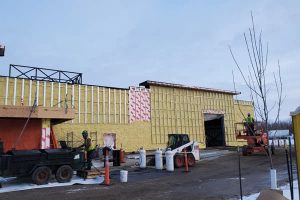

Commercial Insulation
Create a safe and effective working environment with better thermal and fireproof protections, effective moisture and vapour barriers and reduce unnecessary noise pollution
Insulation Applications
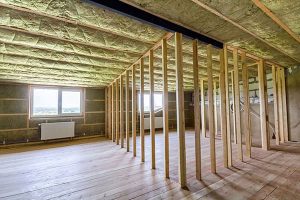

New
Construction
Choose a local Edmonton-based insulation installer who has the experience and reputation to be able to execute your project on time and on budget.
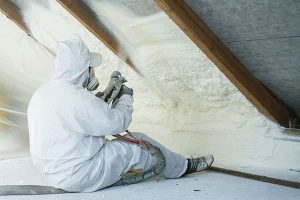

Attic
Insulation
By increasing your attic insulation R-value, you can save a significant amount of money by reducing your heating costs.
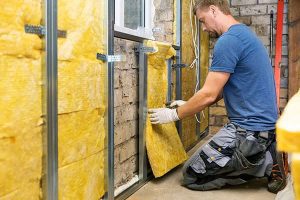

Basement
Insulation
Keep your home at a steady temperature all year long, reduce condensation and moisture build-up within your basement, and save money on your heating and cooling bills with proper basement insulation.
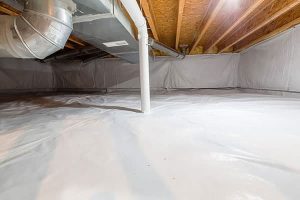

Crawl Space Insulation
Installing or updating your crawl space insulation is a good way to increase your property value, reduce the risk of damage to your property, and greatly improve the energy efficiency of your space.
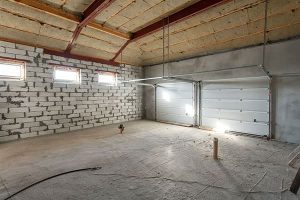

Garage
Insulation
Save money on your energy bill, improve your property value, create a more temperature-regulated space for your vehicles and belongings, and provide additional comfort for you when accessing your garage.
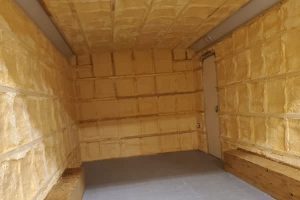

Trailer
Insulation
Insulation can add thermal protection and lower sound levels inside vehicles and mobile storage units.
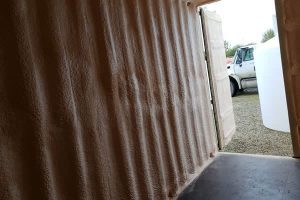

Container
Insulation
The right thermal insulation can protect your container’s contents or keep a comfortable temperature inside containers converted into workspaces.
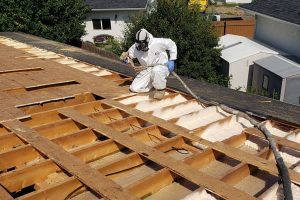

Spray Foam Roofing
Seamless application means vent pipes and other roof hardware won’t need extra flashing, maintenance is minimal, and additional layers of spray foam roofing can be added as needed.








